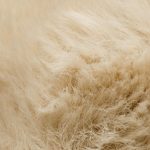Are you tired of dealing with irritated and sensitive skin? Look no further than silk, the ultimate savior for delicate skin.
Discover the natural benefits of silk and its gentle touch that will leave your skin feeling smooth and soothed.
With its moisture-retaining properties and hypoallergenic nature, silk acts as a defense against irritants while providing a breathable and cooling effect.
Say goodbye to skin troubles and hello to a restful beauty sleep with the power of silk.
Table of Contents
The Natural Benefits of Silk
Discover the natural benefits of silk for your delicate skin. Silk pillowcases and silk clothing offer a range of advantages that promote healthy and beautiful skin.
Silk pillowcases are a game-changer when it comes to skincare. The smooth and soft texture of silk reduces friction between your skin and the pillowcase, preventing those annoying crease lines that can appear on your face after a night’s sleep. This means fewer wrinkles and less chance of developing fine lines over time. Additionally, silk is naturally hypoallergenic, making it an excellent choice for those with sensitive skin or allergies. It’s also highly breathable, allowing your skin to stay cool and comfortable throughout the night.
Silk clothing is another fantastic option for maintaining the health of your skin. Like silk pillowcases, silk clothing is gentle on your skin, reducing irritation and promoting a smoother complexion. The natural properties of silk also help to regulate body temperature, keeping you cool in the summer and warm in the winter. This prevents excessive sweating, which can lead to breakouts and skin irritation.
Silk’s Gentle Touch on Delicate Skin
When it comes to delicate skin, silk’s gentle touch is unmatched. Its hypoallergenic properties make it an ideal choice for those with sensitive skin, providing a soothing and nurturing experience.
Not only does silk help to prevent irritation, but it also naturally soothes any existing skin issues, leaving you with a sensationally smooth and calm complexion.
Silk’s Hypoallergenic Properties
Silk offers a gentle touch on delicate skin due to its hypoallergenic properties. It’s known for its anti-inflammatory benefits and anti-aging properties.
When in contact with sensitive skin, silk’s natural proteins and amino acids help to soothe and calm irritations, reducing redness and inflammation. This makes it an ideal choice for individuals with allergies or skin conditions such as eczema or psoriasis.
Silk’s hypoallergenic nature also means that it’s less likely to cause allergic reactions or irritate sensitive skin, making it suitable for those with easily irritated or reactive skin types.
Furthermore, silk’s smooth texture helps to prevent friction and moisture loss, thus preventing premature aging and promoting a youthful complexion.
Nurturing Sensitive Skin
To nurture your sensitive skin, silk provides a gentle touch that will leave you feeling soothed and pampered. When it comes to caring for delicate skin, it’s important to establish effective skin care routines and find the right products that won’t exacerbate sensitivity or cause irritation. Silk can be a game-changer in this regard, as it offers a multitude of benefits for sensitive skin. Take a look at the table below to see how silk compares to other commonly used fabrics in terms of its effects on delicate skin:
| Fabric | Breathability | Moisture-wicking | Hypoallergenic | Softness |
|---|---|---|---|---|
| Silk | High | Excellent | Yes | Luxuriously smooth |
| Cotton | Moderate | Good | No | Soft and comfortable |
| Polyester | Low | Poor | No | Can be rough and stiff |
| Wool | Variable | Variable | No | Can be itchy and coarse |
As you can see, silk stands out as the ideal fabric for sensitive skin. Its breathability allows your skin to stay cool and comfortable, while its moisture-wicking properties keep excess sweat and oil at bay. Additionally, silk is hypoallergenic, meaning it is less likely to cause allergic reactions or irritation. And let’s not forget about the luxurious softness that silk offers, ensuring a gentle touch that won’t aggravate your delicate skin. So when it comes to nurturing your sensitive skin, incorporating silk into your skin care routine and choosing silk-based products can make a world of difference.
Soothing Irritation Naturally
If you’re looking to soothe irritation naturally, silk’s gentle touch on delicate skin can provide the relief you need.
Silk not only feels luxurious against your skin but also possesses remarkable healing properties and anti-inflammatory benefits.
The smooth fibers of silk are known to help soothe and calm irritated skin, making it an ideal choice for those with sensitive skin conditions such as eczema or dermatitis.
The natural proteins found in silk can promote healing, reduce redness, and alleviate itching.
Additionally, silk’s anti-inflammatory properties help to reduce swelling and inflammation, providing a soothing effect on the skin.
Silk as a Moisture Retainer
Silk isn’t just gentle on your delicate skin, it also helps to retain moisture. Its hydrating properties ensure that your skin stays hydrated throughout the day, preventing dryness and flakiness.
Additionally, silk acts as a natural moisture preserver, locking in the skin’s natural oils and preventing moisture loss. It also reinforces the skin barrier, protecting it from external factors that can cause dryness.
Silk’s Hydrating Properties
Your skin will benefit from silk’s natural ability to retain moisture throughout the day. Silk acts as a moisture retainer, helping to keep your skin hydrated and preventing dryness. Here are five key ways silk’s hydrating properties can benefit your skin:
- Silk helps to lock in moisture, preventing water loss and maintaining the skin’s natural hydration levels.
- The smooth texture of silk allows it to glide effortlessly over the skin, aiding in the absorption of moisturizers and serums.
- Silk’s anti-aging benefits come into play here, as well. By keeping the skin moisturized, it helps to reduce the appearance of fine lines and wrinkles.
- Unlike other fabrics, silk doesn’t absorb moisture from the skin, ensuring that your skin remains hydrated throughout the day.
- Silk’s natural fibers are hypoallergenic and gentle on sensitive skin, making it an ideal choice for those prone to dryness or irritation.
Incorporating silk into your skincare routine can help to nourish and protect your skin, leaving it feeling soft, smooth, and hydrated.
Natural Moisture Preservation
Experience the natural moisture preservation of silk as it effortlessly retains hydration for your delicate skin.
Silk’s anti-aging benefits and its role in preventing skin dryness make it a perfect choice for maintaining a healthy and youthful complexion.
Silk fibers have a unique structure that allows them to absorb and retain moisture, keeping your skin hydrated throughout the day.
Unlike other fabrics, silk doesn’t strip your skin of its natural oils, which are essential for maintaining moisture balance.
By locking in hydration, silk helps to prevent the signs of aging such as fine lines and wrinkles.
Additionally, silk’s smooth and soft texture minimizes friction on the skin, reducing the risk of dryness and irritation.
Embrace the natural moisture-preserving qualities of silk and indulge your delicate skin in its gentle embrace.
Skin Barrier Reinforcement
As you delve deeper into the benefits of silk for delicate skin, you’ll discover its remarkable ability to reinforce the skin barrier and retain essential moisture. Silk acts as a protective shield, enhancing the skin’s natural defense mechanisms and maintaining its health and vitality.
Here are five ways silk contributes to skin barrier integrity and protects against environmental damage:
-
Silk fibers create a barrier that shields the skin from harmful pollutants and irritants, preventing them from penetrating and causing damage.
-
The smooth texture of silk helps to reduce friction and irritation, minimizing the risk of inflammation and maintaining the skin’s natural moisture balance.
-
Silk’s moisture-retaining properties lock in hydration, preventing moisture loss and keeping the skin supple and nourished.
-
The natural proteins present in silk promote collagen production, improving the skin’s elasticity and strength, thus enhancing its ability to protect against environmental stressors.
-
Silk’s hypoallergenic nature makes it suitable for even the most sensitive skin types, reducing the risk of allergic reactions and further reinforcing the skin barrier.
Incorporating silk into your skincare routine can provide a luxurious and effective solution for maintaining skin barrier integrity and protecting against environmental damage.
The Hypoallergenic Properties of Silk
The hypoallergenic properties of silk make it a gentle and soothing choice for those with sensitive skin. Silk’s unique composition and structure contribute to its ability to alleviate allergic reactions and promote healthy skin regeneration.
| Silk’s Impact on Allergies | Silk’s Role in Promoting Healthy Skin Regeneration |
|---|---|
| Silk is naturally hypoallergenic, meaning it is unlikely to cause allergic reactions. | Silk contains natural proteins and amino acids that help to promote collagen production in the skin. Collagen is essential for maintaining skin elasticity and reducing the appearance of wrinkles. |
| Unlike synthetic fabrics, silk does not trap moisture, bacteria, or allergens against the skin. | Silk’s smooth and soft texture helps to prevent friction and irritation, making it an ideal choice for individuals with sensitive or easily irritated skin. |
| Silk’s natural fibers are resistant to dust mites, mold, and mildew, making it a hypoallergenic choice for those with respiratory allergies. | The smooth fibers of silk help to reduce friction against the skin, minimizing the risk of skin damage and irritation. |
| Silk’s temperature-regulating properties help to keep the skin cool and dry, reducing the likelihood of sweat-induced irritations and rashes. | The natural proteins in silk help to retain moisture in the skin, keeping it hydrated and promoting a healthy skin barrier. |
| Silk’s breathability allows air to circulate around the skin, preventing heat and sweat buildup that can lead to skin irritations. | The gentle nature of silk allows the skin to heal and regenerate more effectively, making it beneficial for individuals with skin conditions such as eczema or dermatitis. |
Silk’s Breathable and Cooling Effect
Keeping your skin cool and comfortable, silk’s breathable and cooling effect is a game-changer for those with sensitive skin. When it comes to delicate skin, finding the right fabric is essential for maintaining comfort and preventing irritation. Silk, with its unique properties, proves to be an excellent choice for individuals with sensitive skin.
Here are five reasons why silk’s breathable fabric and cooling properties make it the ideal option for those seeking relief:
-
Regulates temperature: Silk is a natural insulator, meaning it keeps you warm in cold weather and cool in hot weather. Its breathable nature allows air to circulate, preventing excessive sweating and reducing the risk of overheating.
-
Absorbs moisture: Silk has the remarkable ability to absorb moisture without feeling damp. This feature helps to keep your skin dry, preventing the growth of bacteria and reducing the likelihood of skin irritations.
-
Hypoallergenic: Silk is naturally hypoallergenic, making it suitable for sensitive skin. It’s less likely to cause allergic reactions or aggravate existing conditions such as eczema or psoriasis.
-
Gentle on the skin: The smooth and soft texture of silk is gentle on sensitive skin. It minimizes friction, reducing the risk of irritation and promoting a comfortable and soothing experience.
-
UV protection: Silk has natural UV-blocking properties, shielding your skin from harmful sun rays. This feature is especially beneficial for individuals with sun sensitivity or those prone to sunburns.
Silk as a Defense Against Skin Irritants
Protect your delicate skin from irritants with the defense of silk. Silk, known for its smooth texture and luxurious feel, not only serves as a fashion statement but also acts as a barrier against skin irritants. Unlike other fabrics, silk has natural properties that make it an ideal choice for those with sensitive skin.
Silk’s tightly woven fibers create a protective layer that shields your skin from external irritants such as dust, pollen, and bacteria. This can be especially beneficial for individuals prone to allergies or skin conditions like eczema. The smooth surface of silk also reduces friction, minimizing the risk of skin irritation and inflammation.
Moreover, silk’s hypoallergenic properties make it gentle on the skin, making it suitable for even the most sensitive types. Unlike synthetic fabrics, which can trap heat and moisture, silk’s breathability helps regulate body temperature, preventing sweat and excess oil buildup that can lead to breakouts.
Not only does silk provide a defense against irritants, but it also adds a touch of luxury to your wardrobe. Its soft and lustrous appearance makes it a timeless and elegant choice for any occasion. So, why compromise comfort and style when you can have both with silk? Incorporating this natural fabric into your daily routine can help protect and nourish your delicate skin while making a fashion statement.
Silk’s Contribution to a Restful Beauty Sleep
Looking to enhance your beauty sleep? How can silk contribute to a restful night’s sleep? Silk’s luxurious touch not only feels amazing against your skin but also offers several benefits that can help improve the quality of your sleep. Here are five ways silk can contribute to a restful beauty sleep:
-
Silk’s smooth surface reduces friction, preventing your hair from tangling and becoming damaged. Wake up with smoother, healthier-looking locks.
-
The natural properties of silk help regulate your body temperature, keeping you cool in the summer and warm in the winter. Say goodbye to tossing and turning due to discomfort.
-
Unlike other fabrics, silk doesn’t absorb moisture from your skin, allowing it to retain its natural moisture levels. Wake up with hydrated, supple skin.
-
Silk’s hypoallergenic properties make it an excellent choice for those with sensitive skin or allergies. Say goodbye to redness, itching, and irritation.
-
Silk’s gentle touch reduces the formation of wrinkles caused by friction between your skin and the pillowcase. Wake up with a smoother, more youthful-looking complexion.
Frequently Asked Questions
How Is Silk Made and Where Does It Come From?
Silk is made through a process called silk production, which involves silk farming. It is a delicate fabric that comes from the cocoon of the silkworm. It is known for its smooth texture and is great for sensitive skin.
Can Silk Be Used by People With Sensitive Skin Conditions Such as Eczema or Rosacea?
Silk for sensitive skin? Absolutely! Silk has numerous benefits for skin conditions like eczema and rosacea. It’s known for being gentle, breathable, and hypoallergenic, making it perfect for those with delicate skin.
Is Silk Suitable for All Ages, Including Babies and the Elderly?
Silk is suitable for all ages, from babies to the elderly. It offers numerous benefits for sensitive skin, providing a smooth and gentle touch. Experience the wonders of silk for yourself.
Does Silk Require Any Special Care or Maintenance to Retain Its Beneficial Properties?
To retain the beneficial properties of silk, you need to provide special care and maintenance. Regularly washing it according to the instructions and avoiding harsh chemicals will help keep your silk’s properties intact.
Can Silk Help With Reducing Wrinkles and Improving the Overall Appearance of the Skin?
Silk can help reduce wrinkles and improve your skin’s appearance. Its smooth texture and natural proteins can moisturize and nourish your skin, making it look younger and more radiant.
- Tetron Fabric Suit: Style and Comfort Combined - June 17, 2025
- Tetron Fabric for Bags: Durability and Design Tips - June 17, 2025
- Tetron White Fabric: Style and Application Guide - June 17, 2025




